We are in the center of Portimão, more specifically on Rua Francisco Bivar, to discover the first Urban Garden of Mushrooms in the Algarve.
Pleorotus Djamor, Pholiota nameko or Buna Shimeji are probably unknown names. For Cláudia Martins and Ion Volosciuc, 34, they were too, until, by chance, they stumbled upon an Instagram post that made them research more on the subject and enter the world of mushrooms.
«The idea for the project started in 2021, with a very simple thing: I stumbled across an Instagram post that talked about mycelium-based biomaterials, I found it super interesting and started reading, started researching the subject and delved into a world that fascinated me", says Ion Volosciuc ao Sul Informação.
For months, Ion, who worked in London as a restaurant manager, researched the topic, got information, and tried to figure out how he could start a business in this area. Cláudia, his wife, an optician, joined him in the challenge and, at the end of 2021, the company was born. Gribb.
After six years living in London, where they went through the most complicated phases of the pandemic, Ion and Cláudia knew that they wanted to return to Portugal and that it was in Portimão that they wanted to start what would be the project of their future as a couple – the first Urban vegetable garden of Algarve mushrooms, dedicated to ecological and healthy production.
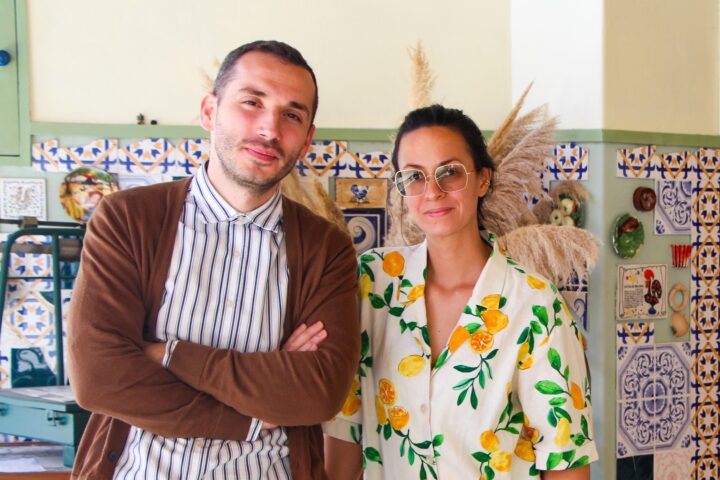
Because they believe in the nutritive power of mushrooms, the couple wanted to bring to the Algarve a new way of looking at food – «emphasizing the importance of this fungus» for those who increasingly opt for a diet where meat and fish are no longer occupy a prominent place.
“In 2018, we started going vegetarian. Once again, I think it was influenced by what we read and saw and the environment in which we lived was very conducive to this because there is more awareness. Things happen a lot there [in London] and then they spread to the rest of Europe. We tried it and the results were good, but of course it is necessary to relearn how to cook and the problem is that there are many people who simply eliminate some foods, but they start to eat even worse”, explains Ion.
In Portimão, a place they identify as home – since Ion, despite being Moldavian, grew up in this Algarve city, and Cláudia, born in Covilhã, worked here for six years – the couple saw all the conditions to start this new project, although , at first, as they emphasize, many did not believe that it would work.
«When we started it was a bit to break the normal because the store we chose had been closed for a long time, it had already had several deals that everyone insisted on telling us that they didn't go well [laughs], but we decided to go ahead. We redecorated the store and the first mushrooms appeared in December [three months after they took over the space]. Everything here has been reused», explains Cláudia.
But, after all, how do you make mushrooms grow in urban areas? That's what we were also trying to understand when we visited Gribb.
According to Ion, the production process is relatively simple. «We are going to get sawdust – waste from Monchique carpentry – that we choose ourselves, as not all woods are suitable for growing mushrooms. We bring the sawdust, sterilize it (for 12 hours), then we inoculate it with mushroom mycelium (also produced by us), it remains to be incubated, and once it is completely colonized and incubated, it goes to the fruiting chambers».
«At this stage, an opening is made in the bags to control the entry of oxygen – and it will be this thermal and oxygen shock that then gives rise to the mushroom», continues Cláudia.
This is a method that also distinguishes Gribb from other projects since, according to Cláudia, «what most companies do is buy pallets of sawdust that is already processed, that has chemical products, and that is a material that is new ( is not use of waste) – and of course, then the mushrooms always come out the same».
In the case of Gribb, the mushrooms are always different, but with the aim of being as sustainable as possible, since what they want is to reuse.
«It is beautiful to see that, when we started going to the carpentry shop, there was a huge pile of sawdust at the door, which was going to be burned or was left to rot, but now, when we go there, there is nothing», says Cláudia.
It is this sawdust that, in the urban vegetable garden of Portimão, is placed in bags from which the mushrooms are then born (and there are not few of them). What started out as a project that no one believed in, now creates 14 species of mushrooms, five of which are unique at national level and two for medicinal purposes.
Gribb mushrooms are sought after daily by hotels, restaurants and individuals – but the demand is so great that, for now, the couple has not even managed to open the first floor of the vegetable garden, which is intended to serve as a store.
«Even today there are many people who pass by and do not understand this very well, also because we have the store almost always closed, because we have no product available for direct sale. As it's just the two of us, and all the product is sold, we don't have the capacity to produce as much and that doesn't allow us to open the store to the public».
The space has been used for workshops, «in order to bring more people to the center and also try to show that mushrooms are not just food and can also serve to create art and learn more about sustainability».
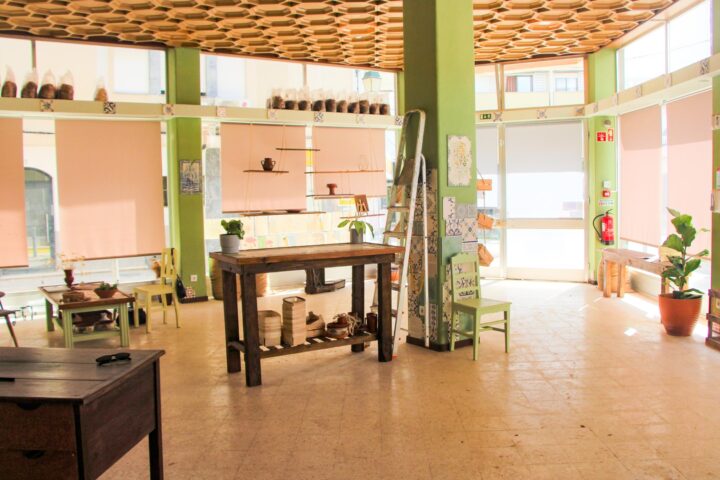
To this end, Gribb has a partnership with the Funghi Foundation, an educational NGO based in Chile. «They gave us a course, for us to study and, through the knowledge acquired, pass this knowledge on to children – from kindergarten to university – and try to explain why the mushroom is so important. If there was no mushroom, the forests would be a pile of garbage. Giving this notion will also help to break the idea that we shouldn't worry about the land and what will happen in many years' time”, explains Cláudia.
According to the couple, this was also always the objective of the project «focused on education and awareness», being closer to the community and the local economy.
Asked if there was any fear about the acceptance of the Algarve people regarding the project, the couple says that it was not easy, but, emphasizes: «we think that the mind is only closed until there is someone who brings new projects» – and that is what they wanted. bring.
«In our opinion, the Algarve is being very dynamic and has a lot of potential. As we run around the region, weekly, from one side to the other, we can really see how different things are – and Portimão is far behind”, says Ion, who left the city in 2015 and returned in 2021. “Things have not gotten worse, but remain the same and our goal is to do it differently», he continues.
With Gribb, the couple also intends to encourage other people to take risks in different projects. «We think that if we had the courage to open a Urban Mushroom Farm in the center of Portimão, expanding this project and this business within the city, and making it bigger and with several possibilities always based on the mycelium, could be an indication that people can do other different things in the city», emphasizes Ion.
In December, Gribb saw the birth of the first mushrooms and made them known to the Algarve and in March it was also distinguished in the Tourism and Agrifood category of the Contest. Innovates Algarve 2.0, aimed at SMEs in the region.
Now, four months after the start, these mushrooms are already in demand all over the country and there are no hands to measure to be able to reach all orders.
“We don't force growth, we just control the growth environment – air, humidity, temperature and light. Our production is artificial, because they do not grow in the countryside, they grow in urban areas, but it is as natural as possible, because we have a biological certificate and in order to have this certificate there are certain things that we have to comply with and that imply care with practices. We cannot add anything that is not biological».
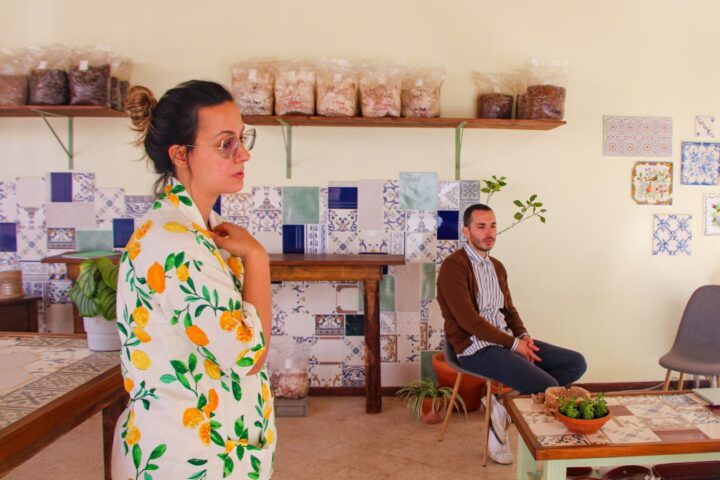
From now on, with the project growing, the idea is to create jobs, fight seasonality and create an industry – always based on mycelium.
“We intend to produce mushroom-based supplements. We will also produce processed mushrooms – that is, dehydrated, canned (…) – mushroom-based seasonings, an aspect very focused on cooking, pharmaceuticals, another focused on biomaterials (construction, clothing, footwear…) and other food products. (hamburgers or bacon…)».
And anyone who thinks that, at that time, the idea will be to leave the center of Portimão is wrong. «The idea is, without a doubt, for people to go through and understand what is being done», they stress, noting that, in order to carry out this project, funding will be needed – something they consider not difficult.
“The principles that were approved at the Paris conferences to reduce environmental impact by 2050 are what we are based on, and that meets what funding bodies are looking for”, says Ion.
Due to the funds available for this purpose, the couple believes that help will arrive and guarantee that it is possible to obtain it.
“There is a lot of skepticism and prejudice about the aid available because it is difficult to get it. There are many petty and small things that need to be done, and it is very difficult to have the resilience, the patience and the will to develop a capable project, because it takes a lot, but we have that will»,
The difficulties to start were many, today they have not diminished that much, but the fact that Cláudia and Ion believe in the project until the end makes them not give up at the first obstacle.
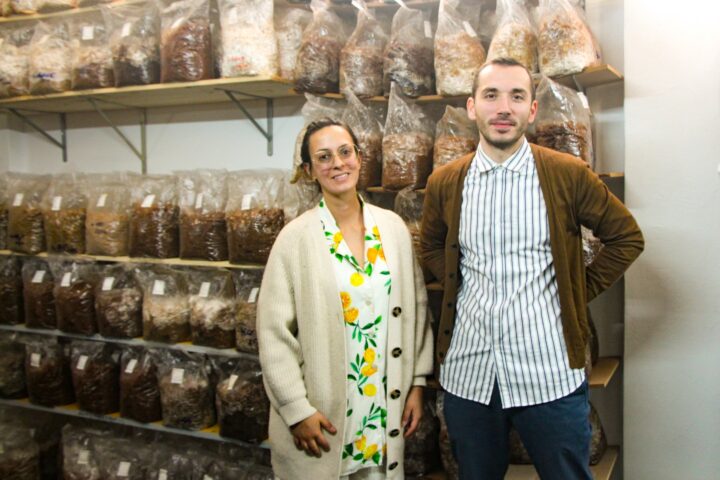
“There are nights when we have to come here at 00:00 because, if we don't come in the morning, the mushrooms have already withered. It takes a lot of will and the issue of funds is not simplified: it takes many hours in front of the computer, a lot of study, a lot of bureaucracy».
To begin with, however, there was no support, “because nobody believed”, they say. Only after the business was up and running did they get help from the bank.
“We didn't invent the wheel: this is done all over the world. In Portugal, it's done in a different and intensive, industrial way, we just do it in a different way», they say, confessing that, before opening, they were told that if they opened a cafe, it would be simpler. «It is not cheap to do this and sustain the unseen costs (insurance, surveillance, security...), but the worst thing is to start».
Today, the mushrooms are distributed weekly by the couple throughout the Algarve. For hotels, there is a specific price, sold by the kilo, but for the public, there are small boxes of 250 grams (6 euros) and large boxes of 500 grams (11,50 euros), called the “mix of the day”.
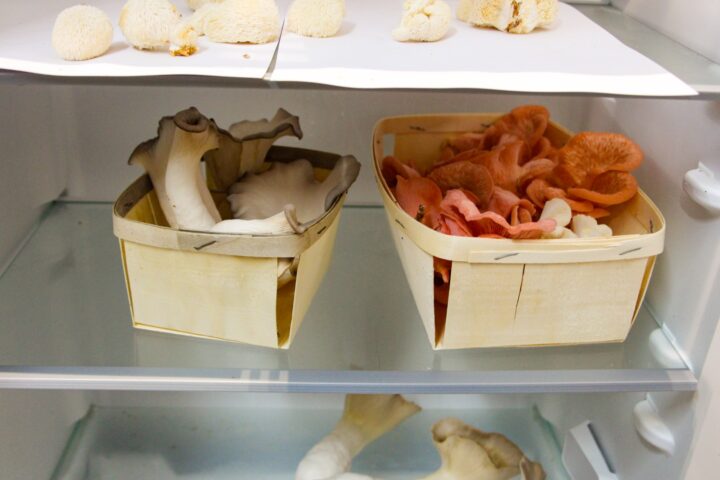
«What we collect on the day, we put it in the boxes so that people can try something different», they say, referring that these are the boxes that are sold on the website.
Ion and Cláudia decided to take a risk and, four months after the start, they make a very positive assessment of what Gribb is now. Asked if this was an expected result, the couple did not hesitate to say yes.
“It was all studied. It was risky, no doubt, because it was creating something that didn't exist. There's always the risk that it won't go well, but that happens in any business. But, yes, everything has been studied: the network of restaurants that the Algarve has, the chefs who are working here, the availability in the market of certain mushrooms that did not exist. We realized that there was this market need (and we also created it) because chefs did not use them because they did not know or because there was no possibility of consumption”, they conclude.
Photos: Mariana Sedge | Sul Informação
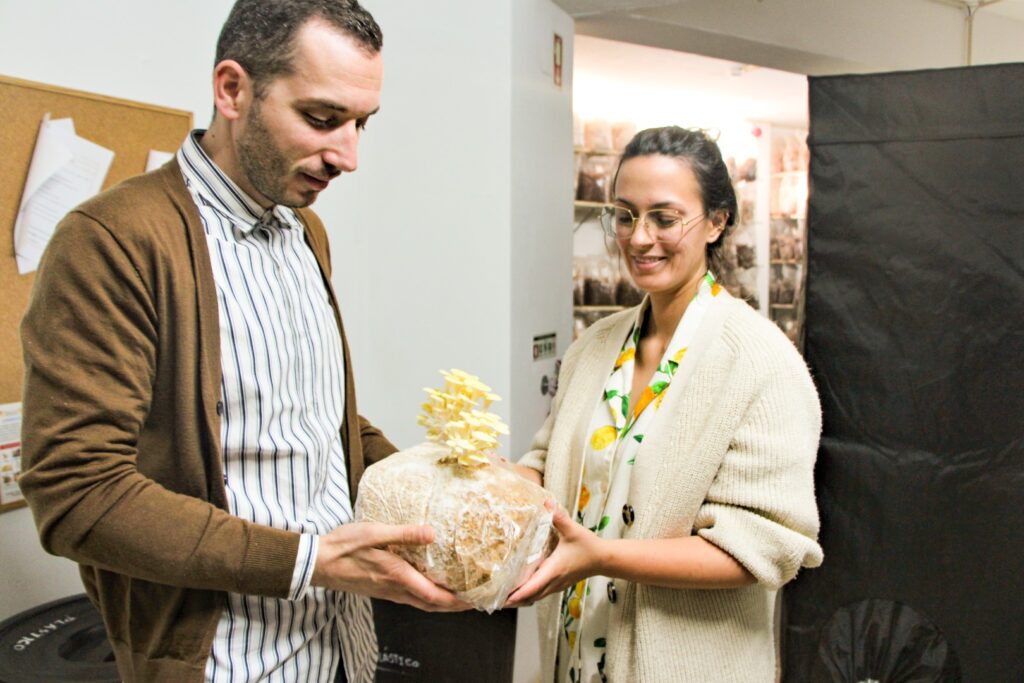
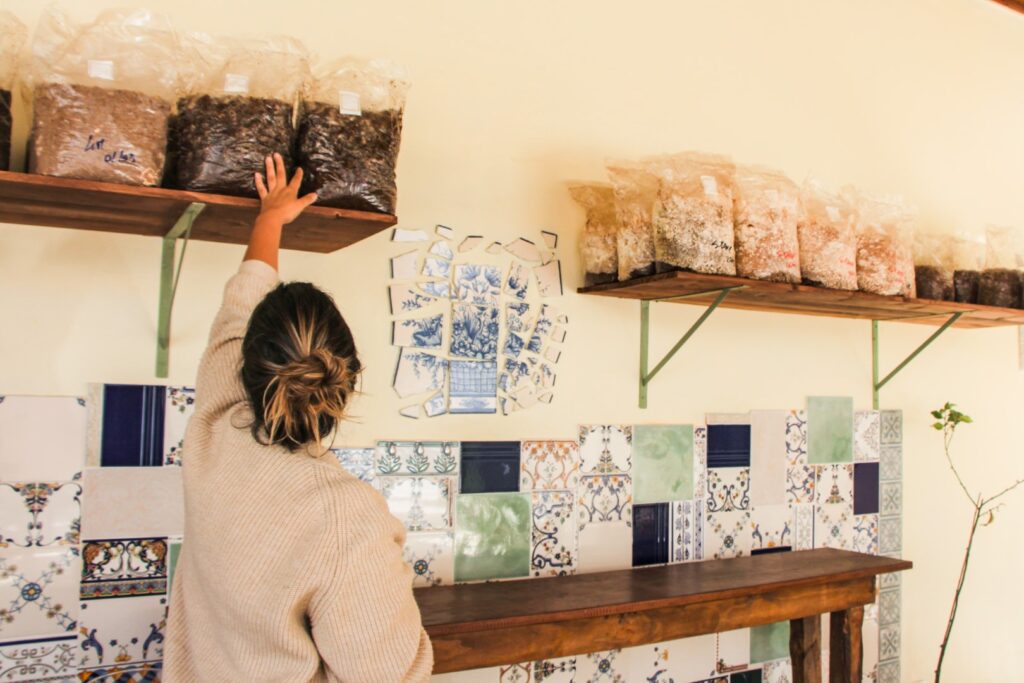
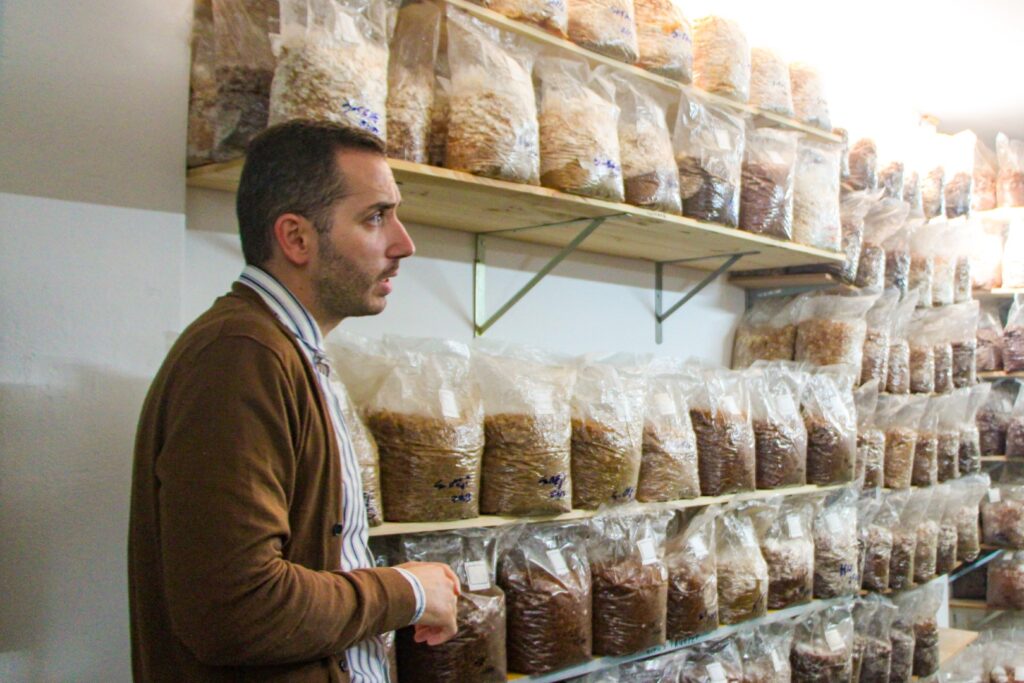
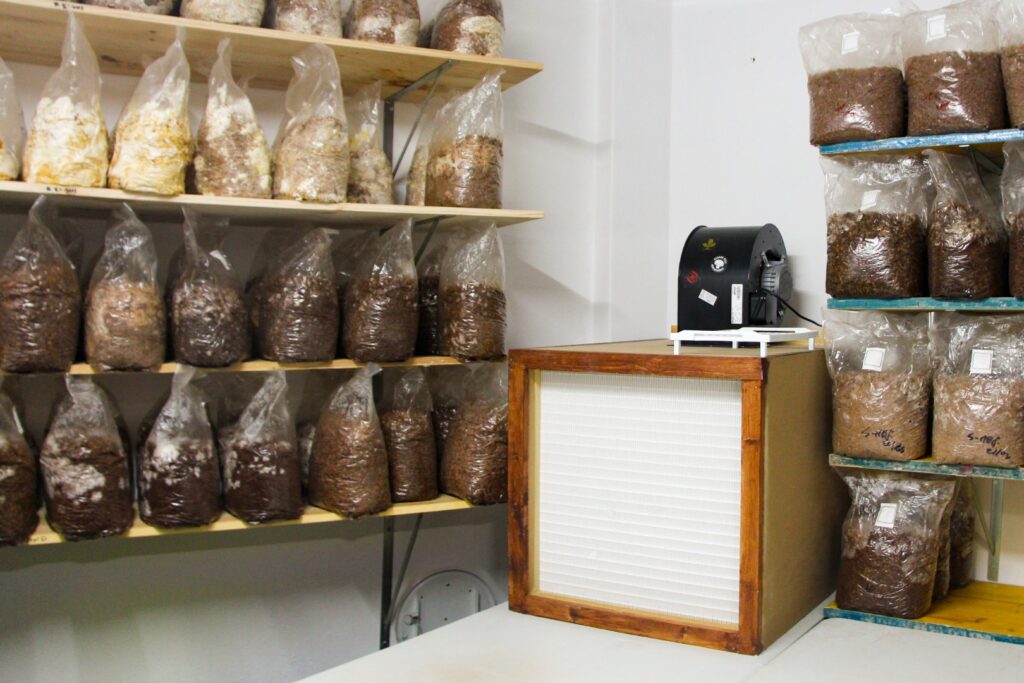
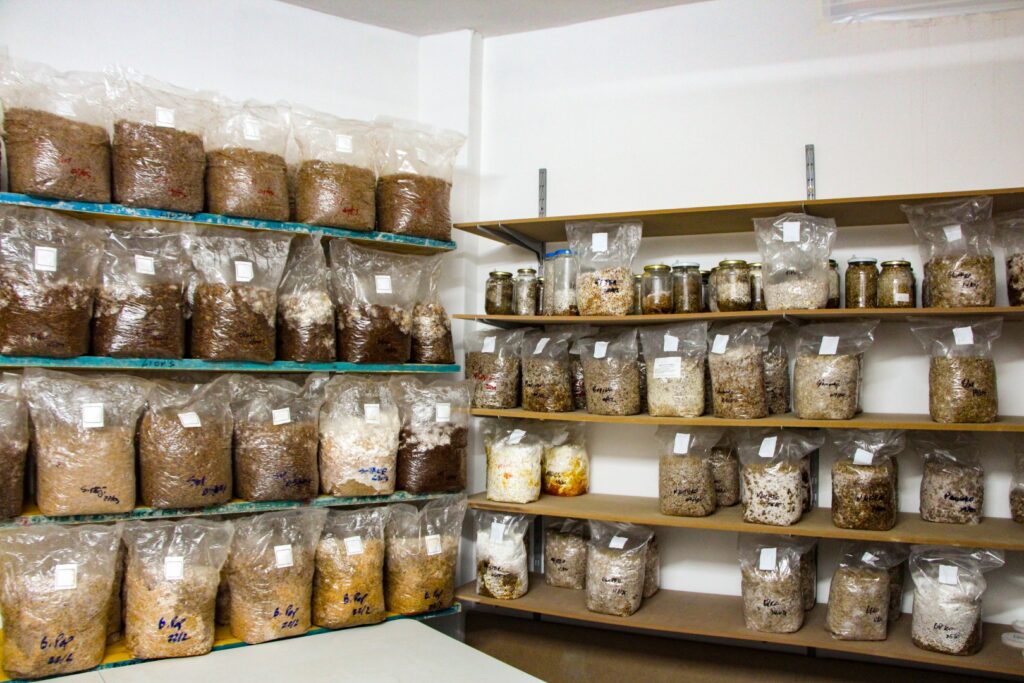
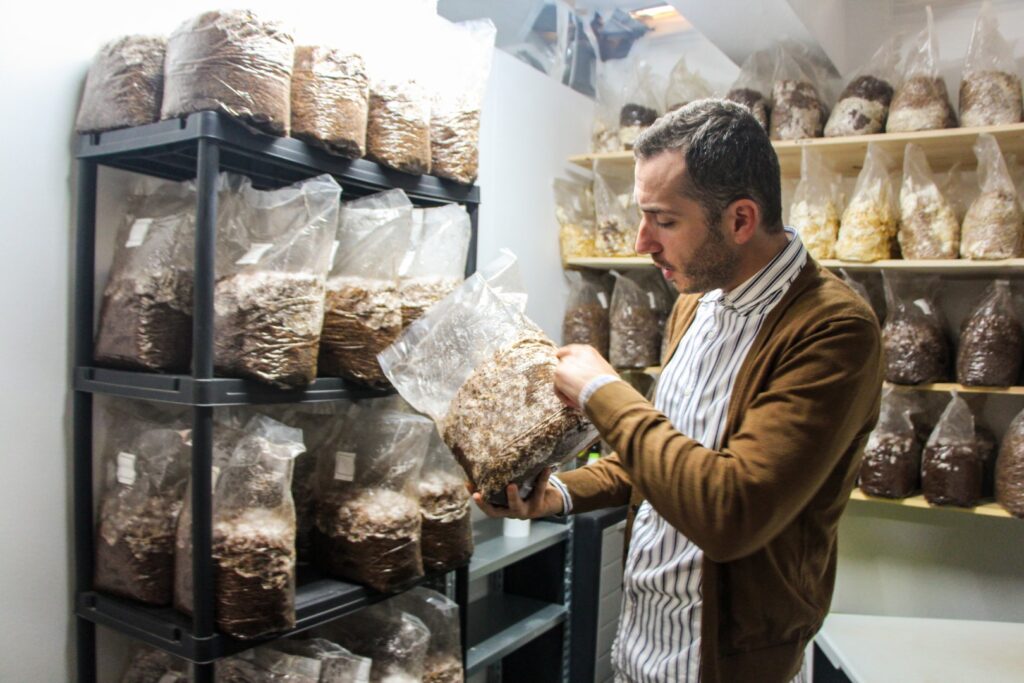
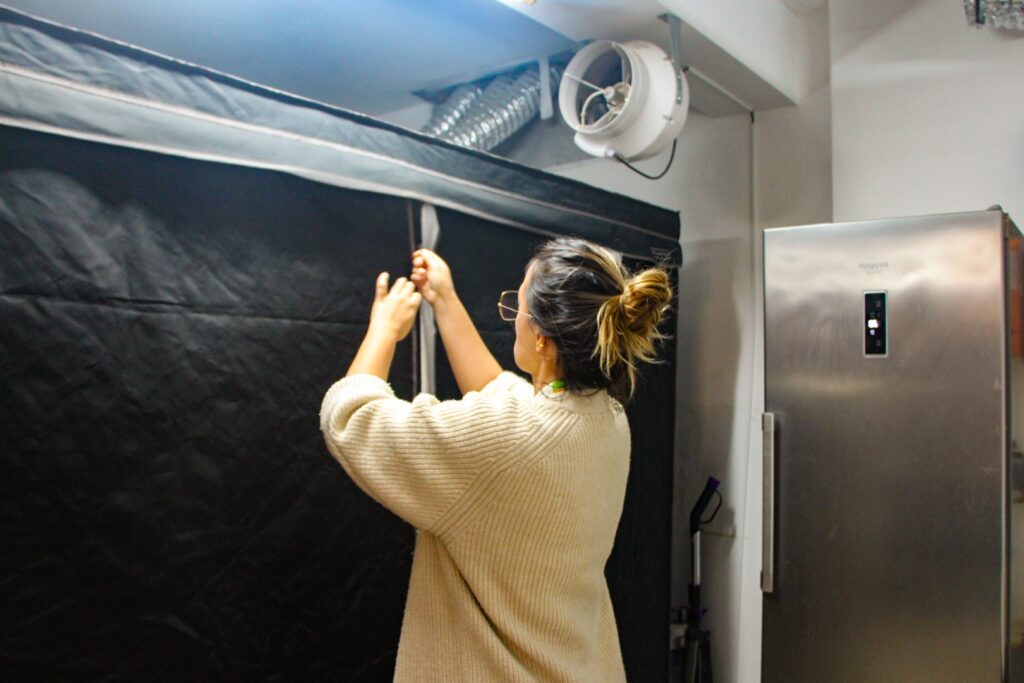
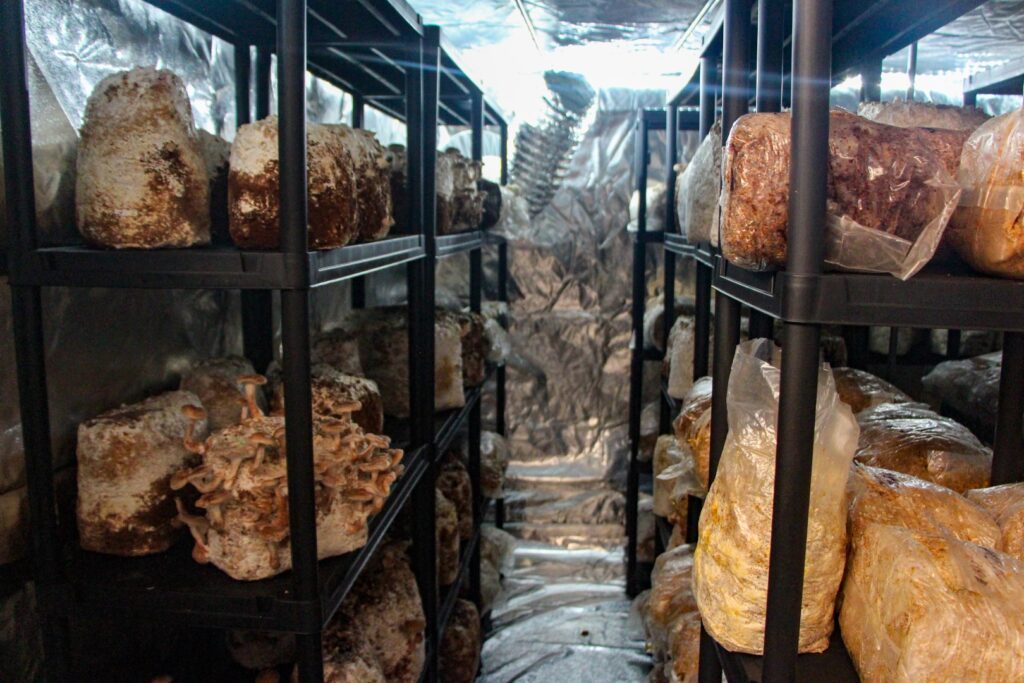
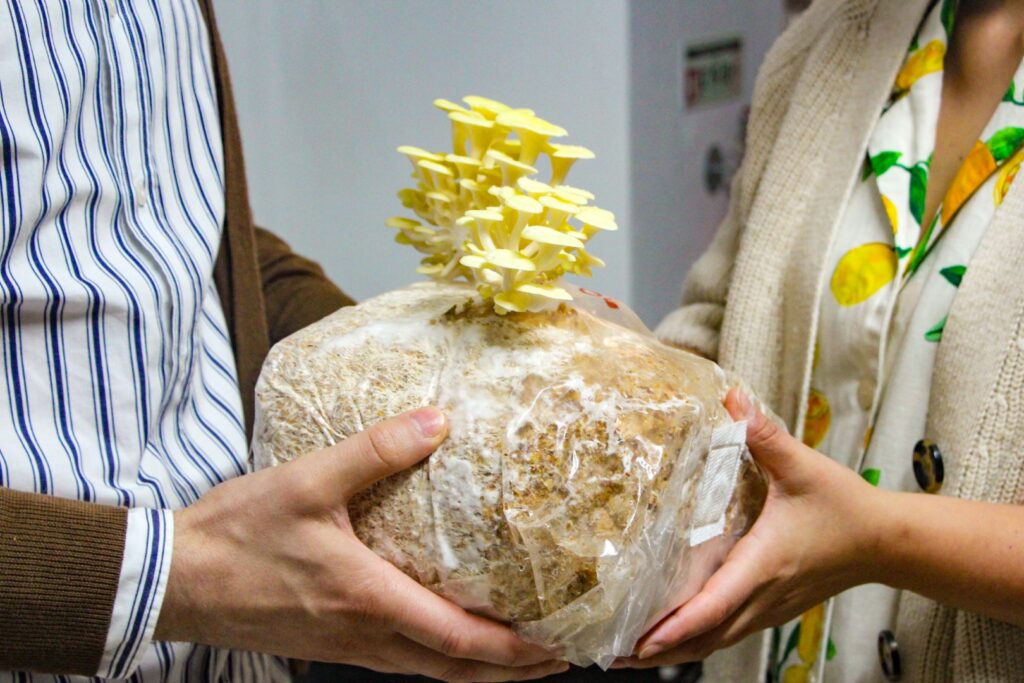
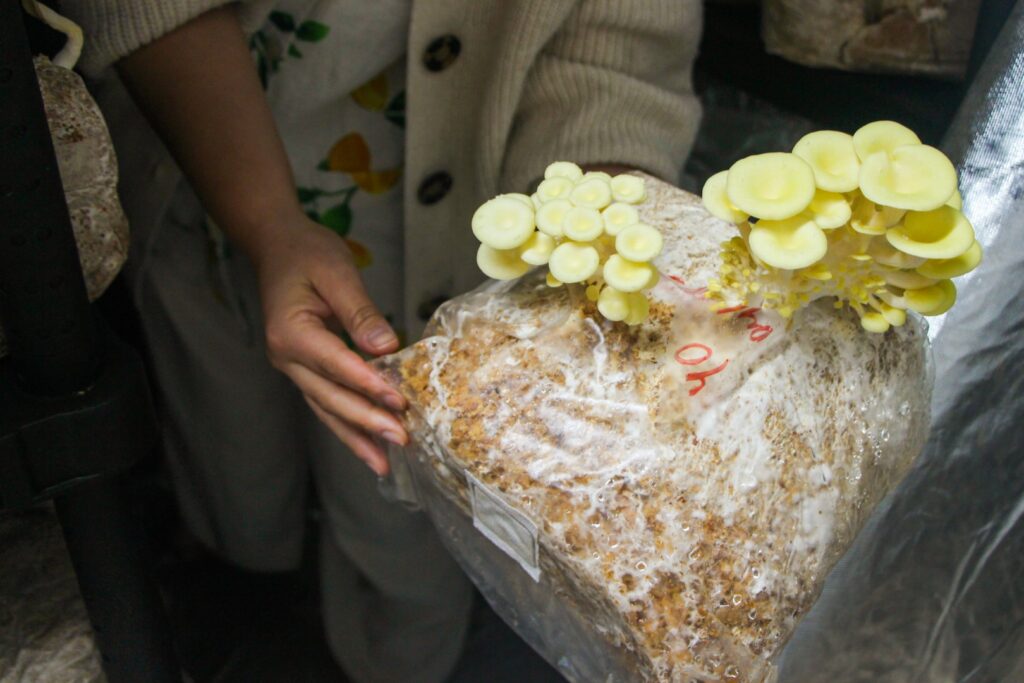
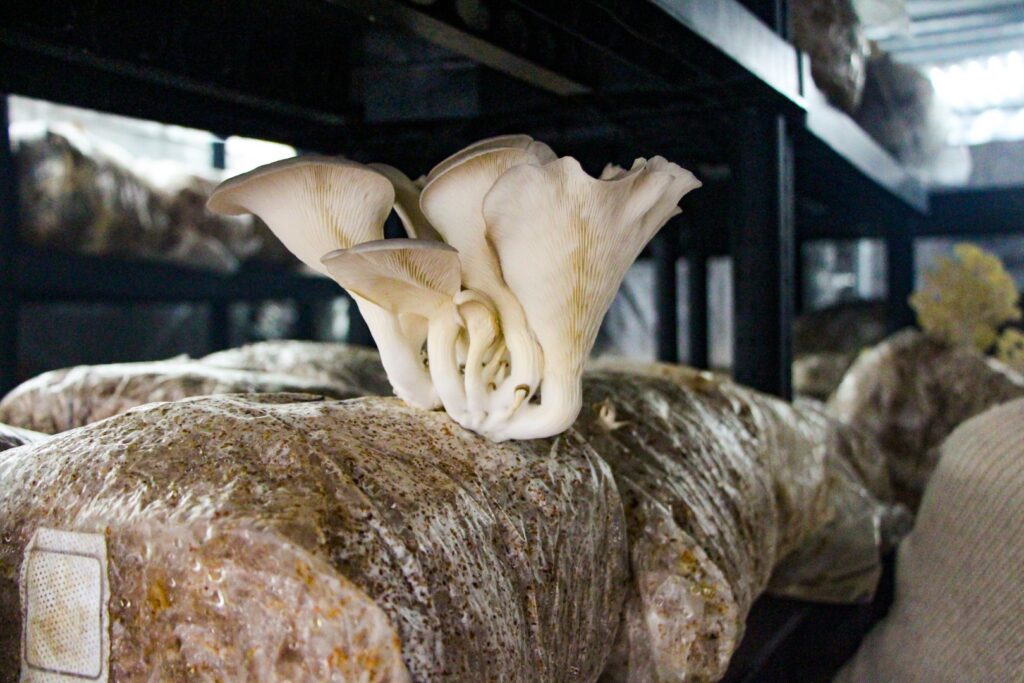
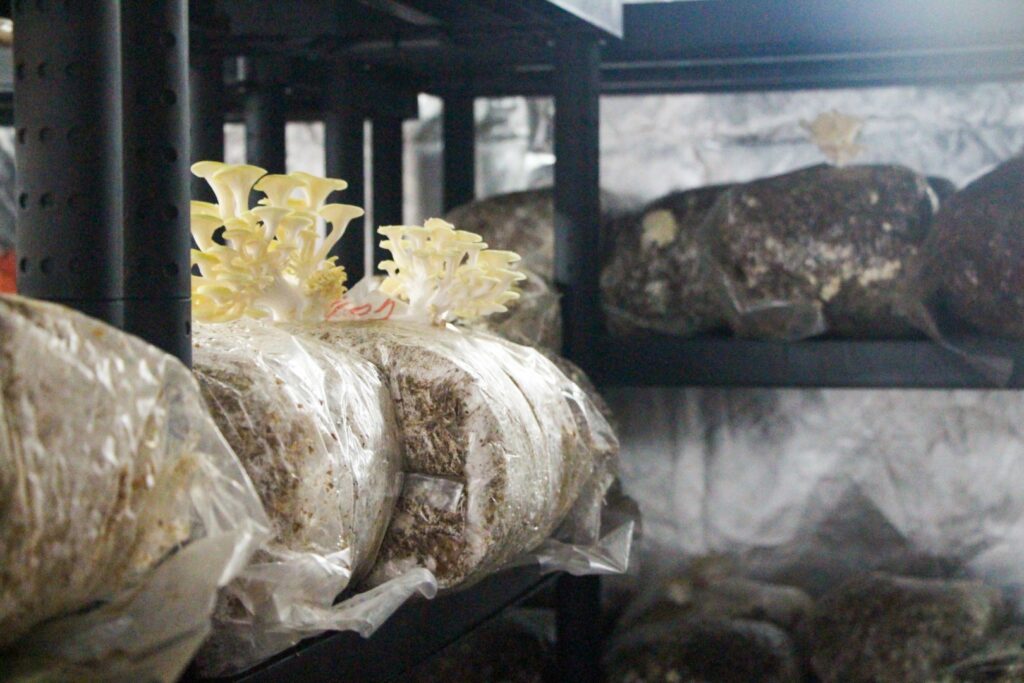
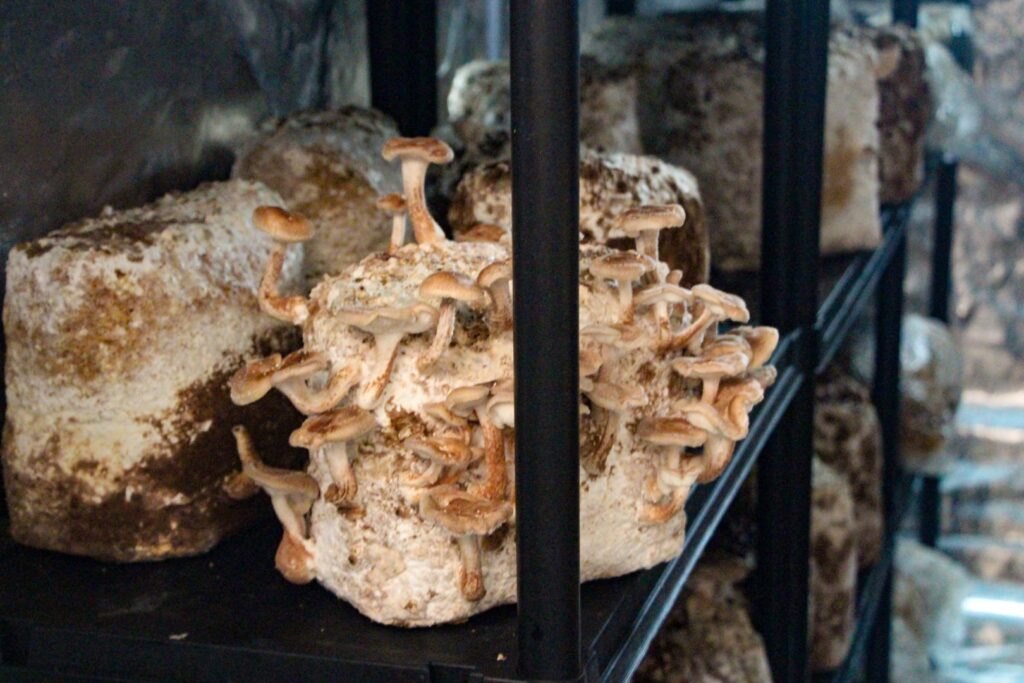
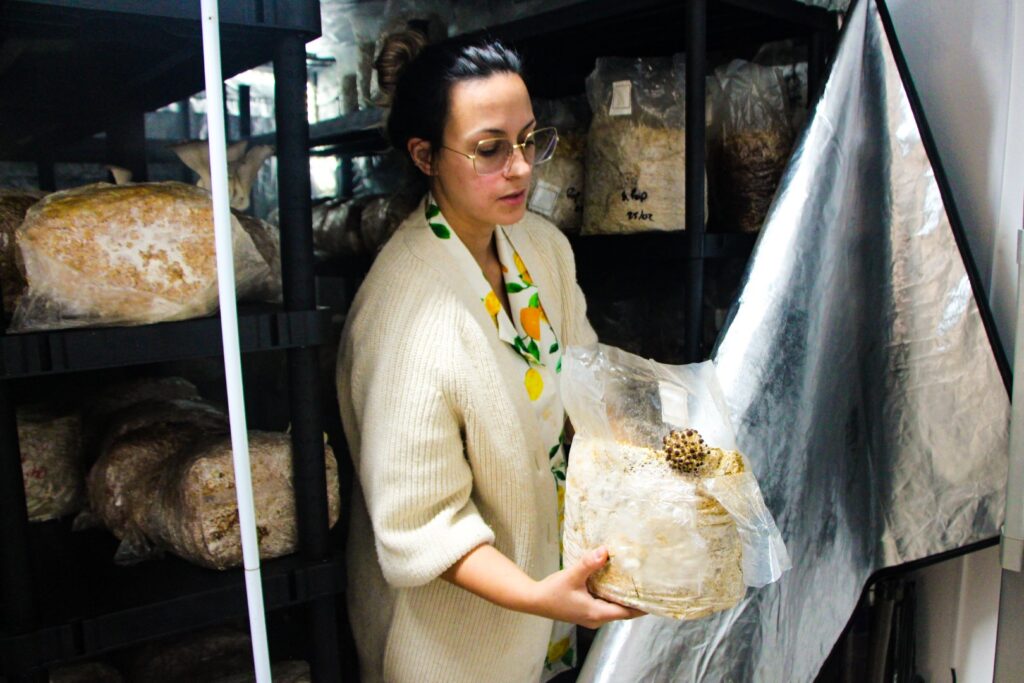
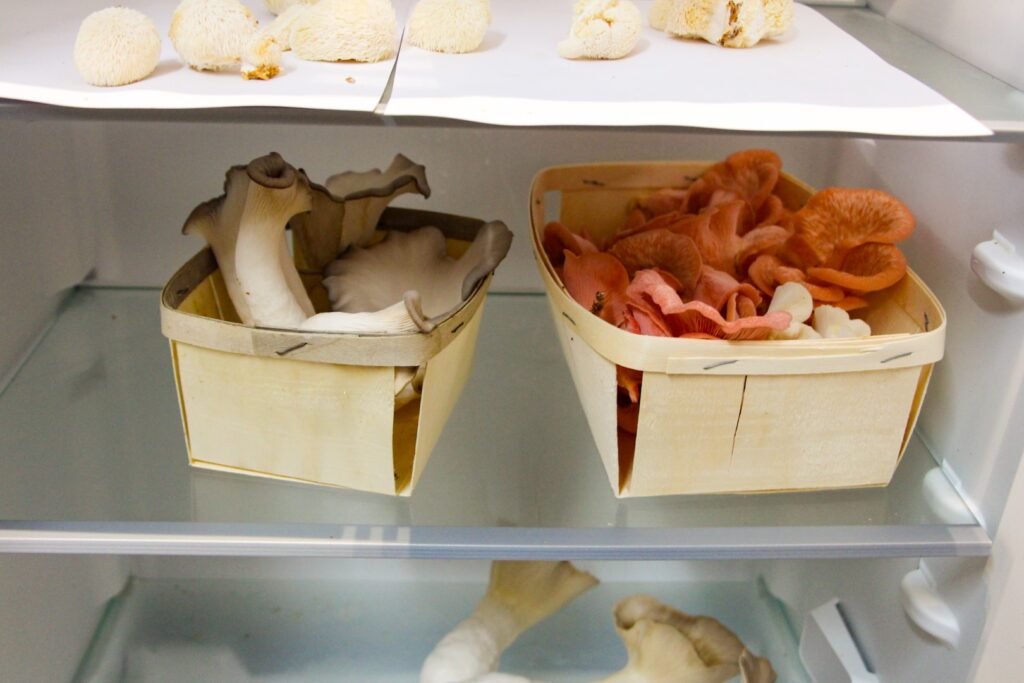
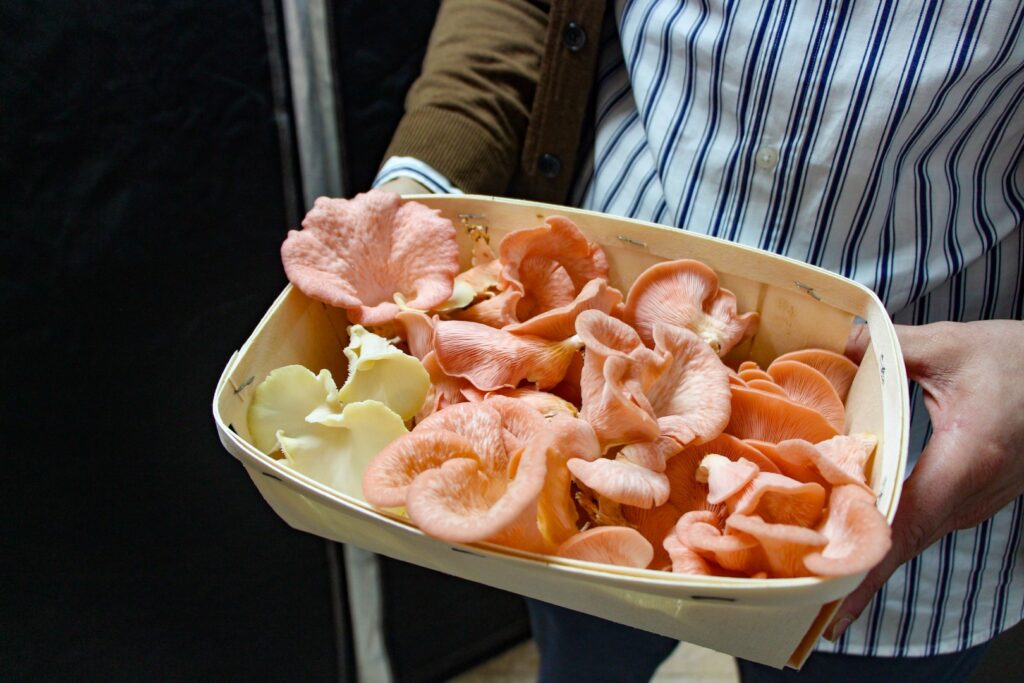
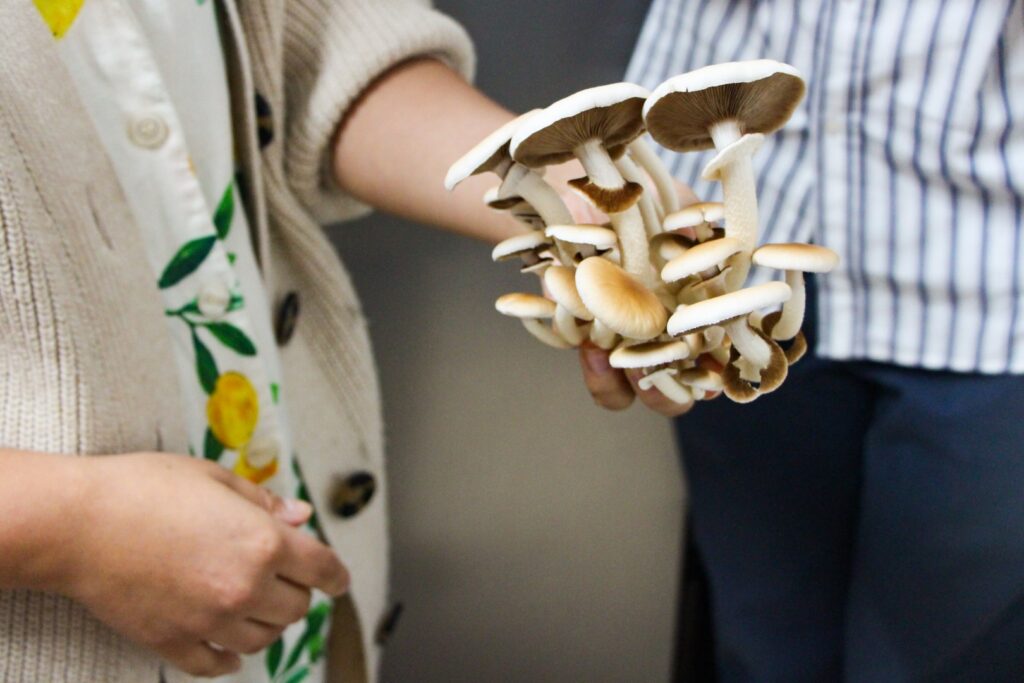
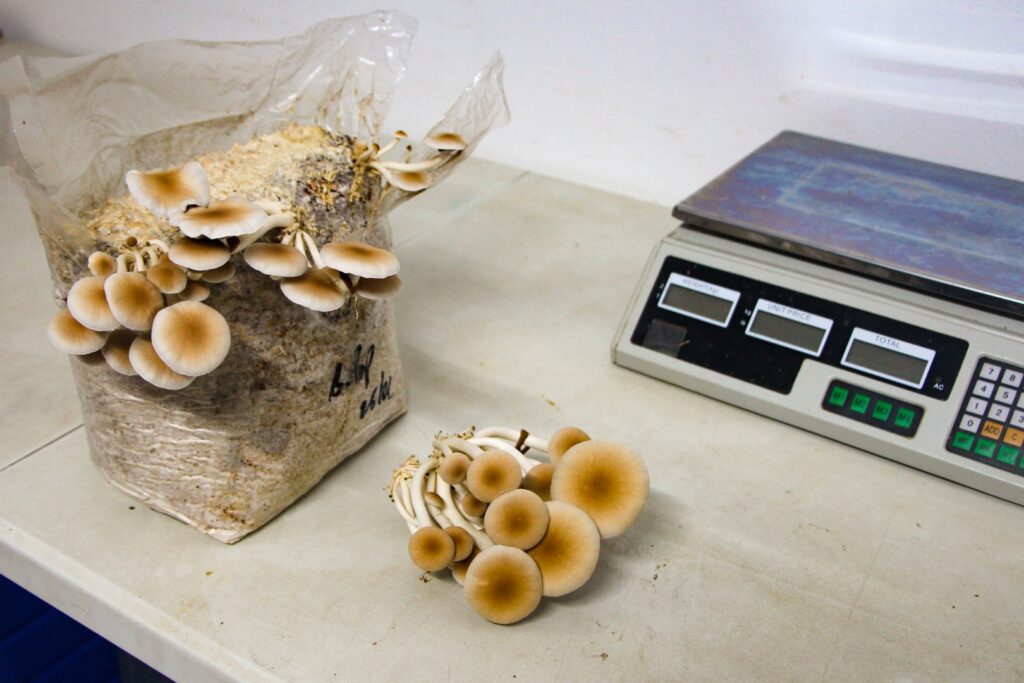



















Comments